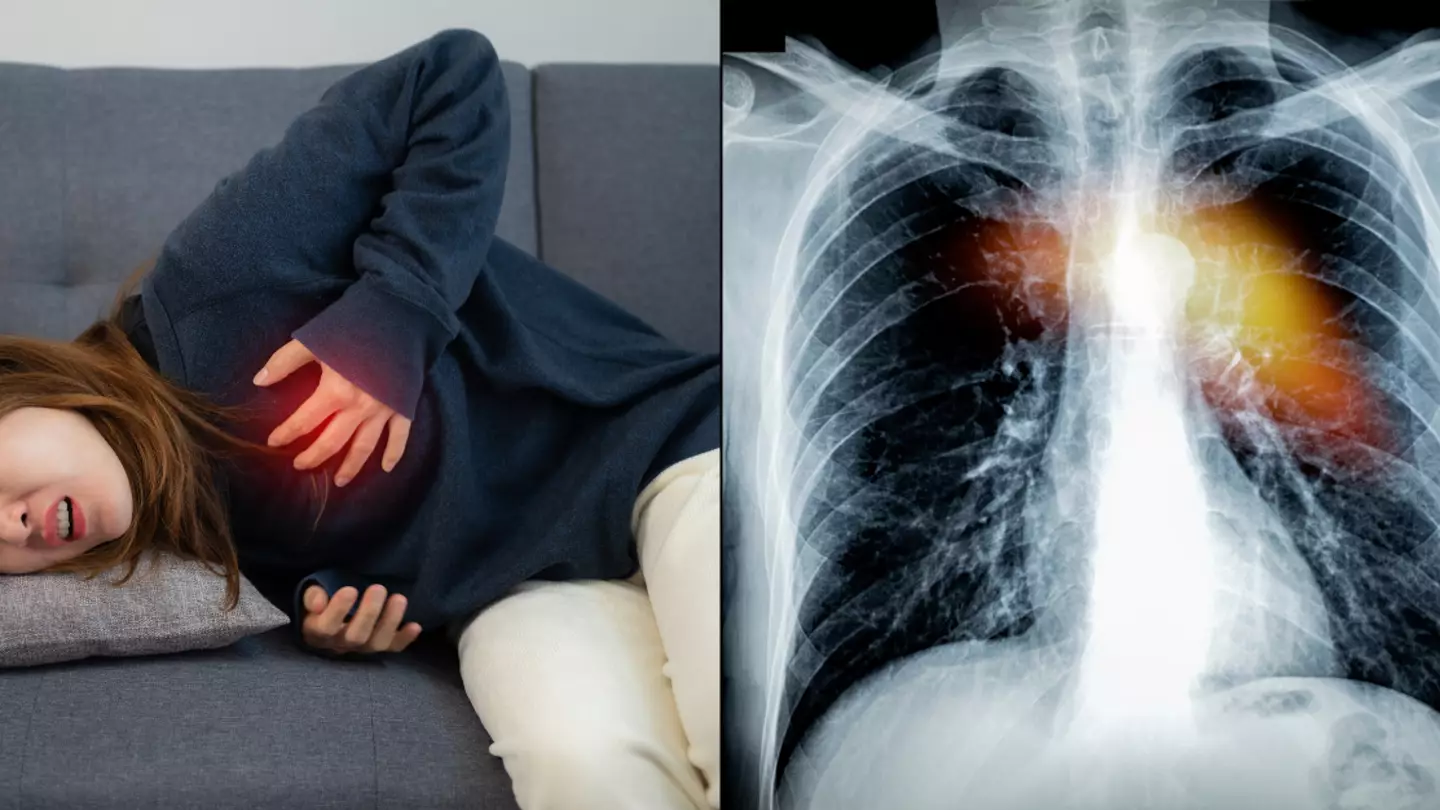A doctor has urged people to be aware of the symptoms of heart failure which are often overlooked, especially the one you could notice while in bed.
The deadly condition is becoming increasingly common in the UK and an estimated 920,000 people are living with it, while a whopping 200,000 new cases are recorded each year.
According to the NHS, symptoms can develop rapidly or over weeks and months – but either way, a speedy diagnosis is key.
What exactly is heart failure?
For those who don’t know, heart failure occurs when the main organ of your cardiovascular system is unable to pump blood around the body properly. In most cases, it happens as a result of the heart becoming too weak or stiff, meaning it needs some support.
The long-term condition, which typically becomes worse over time, can severely limit the abilities of the sufferer and is ‘often eventually fatal’, the NHS warn.
That’s why spotting the signs as early as possible is extremely important – as although there is no cure, the right treatment can help someone manage their symptoms for several years.
This is on top of the fact that heart failure can lead to serious complications such as blood clots, an arrhythmia, organ damage and cardiac arrest, so being aware of the red flags can buy you some very valuable time.

It’s important to know the signs of heart failure (Getty Stock Image)
The signs and symptoms of heart failure
According to Dr Rosie Godeseth, people with heart failure report experiencing varied symptoms, but there are some which continuously crop up in patients.
The medic noted that a lot of people pick up on one common symptom while they are in bed, however it is easily missed – so make sure you are paying attention when you’re head hits the pillow.
Speaking to The Sun, the cardiologist and Associate Medical Director at Vitality Health explained: “Sometimes people will experience fluid buildup in the lungs which can make it hard to breathe when lying down.
“If you find yourself having to be propped up on pillows while you sleep or are waking up short of breath, then book an appointment to see a doctor who may recommend undergoing a sleep study or heart function tests.”
So, if you are struggling to aspirate when lay flat and find yourself propping yourself up with more pillows, it might mean that you need to book an appointment with your GP.

If you struggle to breathe when lying flat, you should book an appointment with your GP (Getty Stock Image)
Look out for swollen ankles and legs
As well as this, you need to be aware that swollen ankles and legs – or possibly even thighs, groin or abdomen – might be a sign of heart failure.
As your heart is struggling to pump the blood around your body effectively, this can cause a build-up of fluid which is known as oedema.
“It’s important to speak to a doctor if swelling persists or is accompanied by other symptoms like dizziness and shortness of breath,” Dr Godeseth said.
A persistent cough, wheezing and a ‘bubbling’ feeling in the chest can also be a sign of heart failure.
This symptom has been dubbed a ‘cardiac cough’ and often occurs due to a fluid buildup in the lungs, according to the health expert.
The doctor continued: “It’s important to speak to a doctor if you have had a cough for more than three weeks, especially if any mucus produced is pink or blood-tinged.”
Rapid weight gain can also be a symptom of heart failure, as the body retains extra fluid and salt when the heart isn’t pumping blood properly.
Dr Godeseth went on: “When the heart isn’t effectively pumping, it can lead to reduced blood flow in the kidneys. These organs regulate fluid and sodium balance, so they respond to the reduced blood flow by retaining fluid and sodium. This fluid accumulates in the body’s tissues, particularly the lower limbs, abdomen and sometimes even the lungs.”
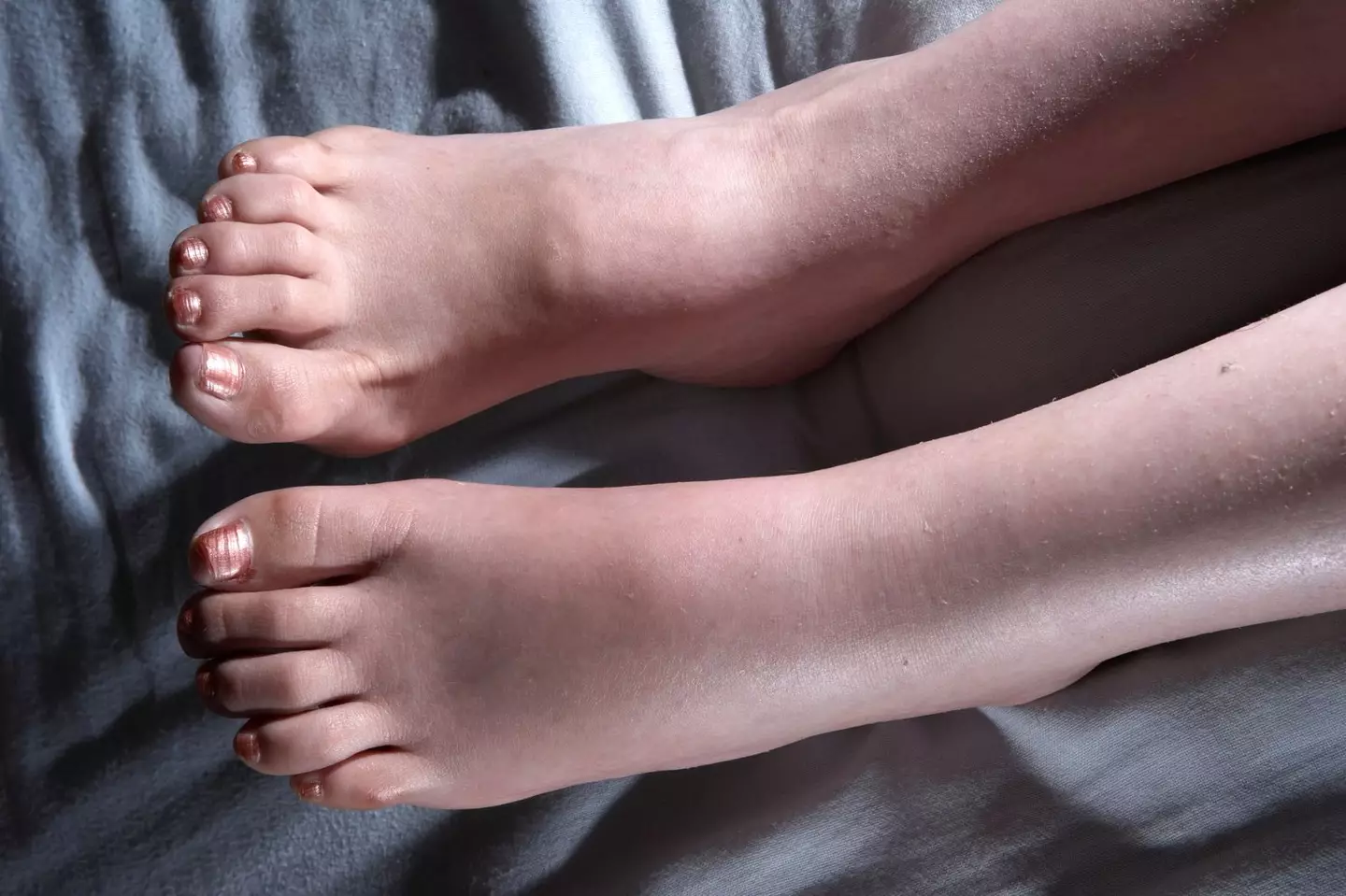
Fluid retention, known as oedema, is also a common symptom of heart failure (NHS)
Lifestyle changes are key in avoiding heart failure early on
She reckons that as heart failure typically affects the older generation, a lot of Brits don’t believe they need to worry about it – but according to Dr Godeseth, people are best off making some big lifestyle changes now to see the benefit later down the line.
The medic explained that consuming a healthy balanced diet, taking part in physical activity regularly and ditching tobacco can all decrease your risk of heart failure.
She added: “It’s really important not to assume heart health is something that should only be considered, or focused on, once you’re older as the actions we make today go a huge way in preventing illness in the future.
“In fact, 80 percent of heart disease cases and strokes are preventable.”
Featured Image Credit: Getty Stock Images
Topics: Health, Lifestyle, News, Sleep, NHS

A mum has shared the ADHD symptoms she struggled with after finally being diagnosed in her 40’s.
According to statistics from ADHD UK, it’s estimated that around 2.6million people in the UK suffer from the disorder.
There are no concrete figures when comes to the amount of adults living with undiagnosed ADHD, however a ‘400% increase’ increase in adults pursuing a diagnosis suggests that a lot of people have spent years suffering in silence.
This often leads to misconceptions that people with ADHD are just ‘lazy’ or ‘unintelligent’ – which is particularly damaging.
This is something that Lydia Berman, 46, from Hemel Hempstead in Hertfordshire, experienced, with the mum-of-one revealing she always believed she was ‘lacking’ something due to her struggling at school.
Speaking to PA about her experience, Lydia revealed that she first learnt that she could have ADHD while undergoing bereavement counselling sessions after the death of her mother in 2020.
“ADHD came up because of the way that I was processing information and the way that I was dealing with emotion, and the brain fog I was struggling with,” she said.
“I’ve used it as something which has helped me understand [myself] and how [to] think and work better.”
Lydia would later visit her GP who agreed that she had obvious signs of ADHD.
What are the common symptoms of ADHD?
ADHD symptoms will vary from age group and person to person, however the NHS website writes that poor organisational skills, an inability to focus or prioritise and forgetfulness could be indicative of ADHD in adults.
ADHD UK also has a self-screening tool for adults, which can be found here.
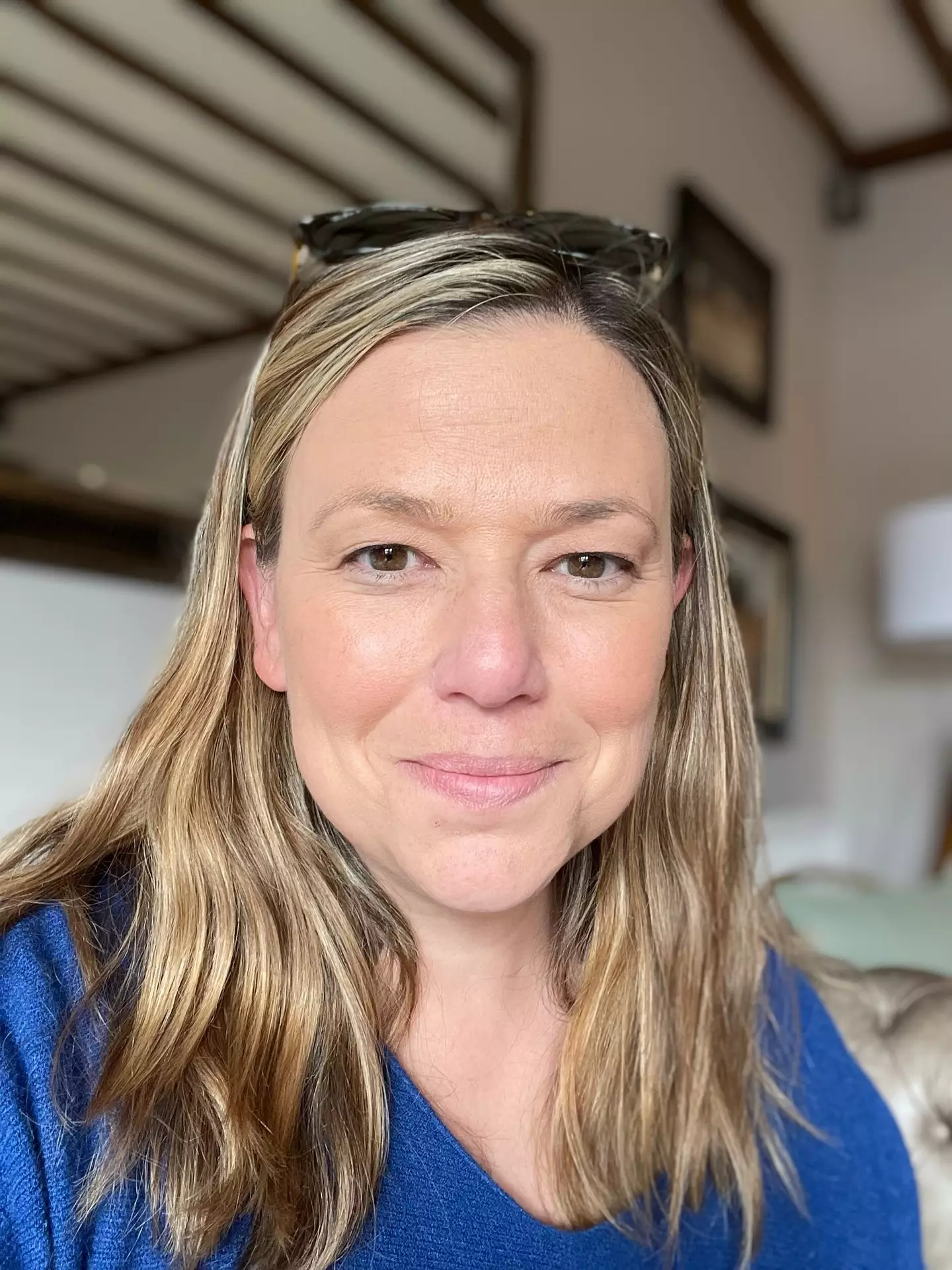
Lydia was first made aware about ADHD when having grief counselling sessions after the death of her mother. (PA)
Explaining her symptoms, Lydia revealed she had included being ‘forgetful’, jumping between ’10 different topics in a sentence’ and having either ‘either hyper focus or have zero focus’.
The conversation also allowed Lydia to finally understand her behaviour patterns and why she had struggled in school.
“I can see quite clearly… that my brain thinks differently to other people now,” she said. “It all made sense.
“I think I just think in a creative way, so I’m very good at problem solving.”
Lydia went on to explain that her ADHD diagnosis had allowed her to ‘better understand’ her strengths – making the day-today running of her business better.
“The diagnosis meant that I could better understand what I can do well, and what I should not be doing – I allocate tasks to other people now,” she added.

The freelance graphic designer revealed learning about ADHD had helped her better understand her strengths in the workplace. (PA)
The freelance graphic designer went on to add that concerns about ADHD being over diagnosed are ‘unwarranted’ especially if a diagnosis leads to people understanding themselves better.
“I think for a long time, people just thought only a very small percentage of people have different ways of thinking but I think [that is] slightly narrow-minded,” she said.
“We’re all wired differently… and I think it is only logical that we learn differently and process things differently.”
Featured Image Credit: (PA)
Topics: Health, Lifestyle, ADHD, NHS, Mental Health
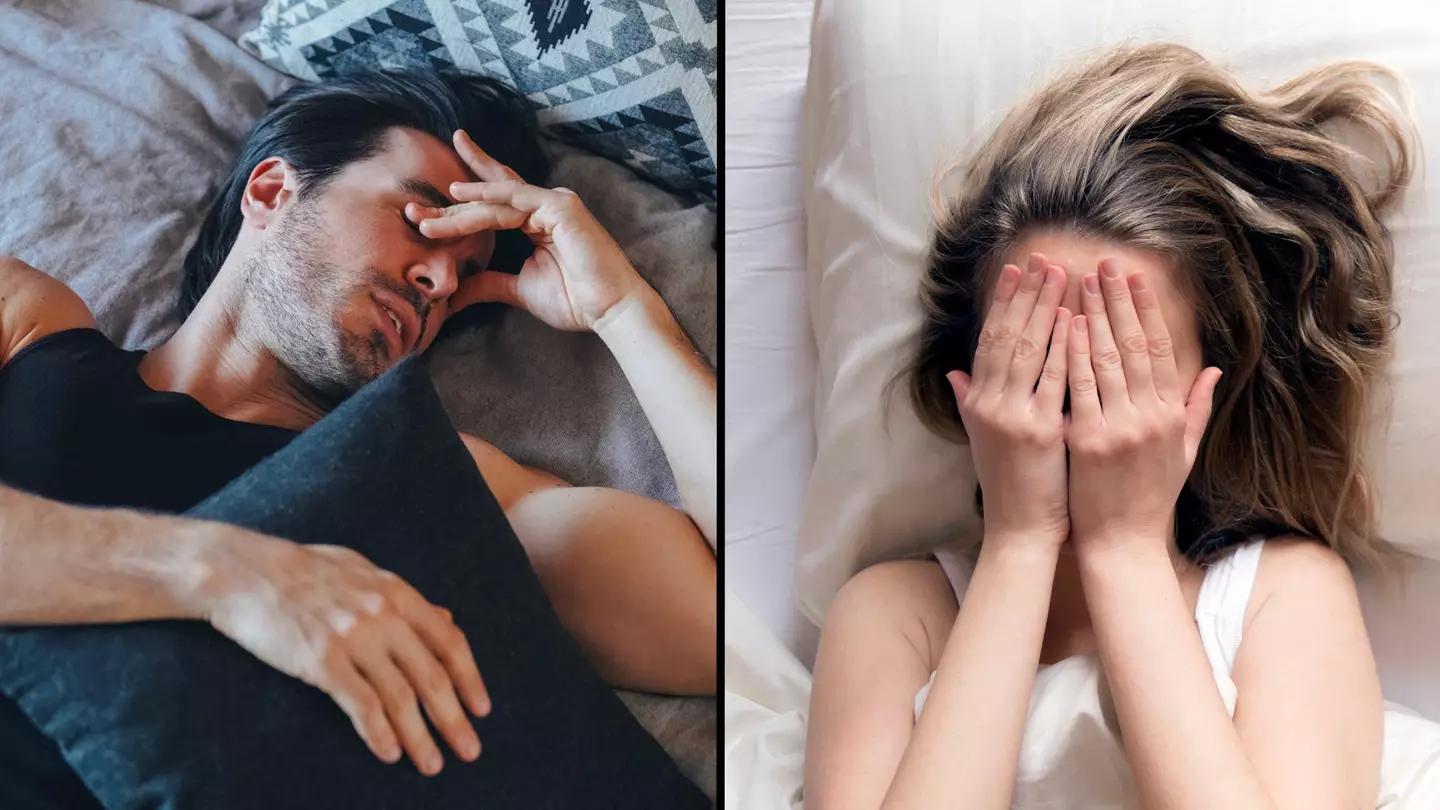
There is a common symptom which many people who have Attention Deficit Hyperactivity Disorder (ADHD) experience – but you might not recognise it for what it is.
There’s always going to be an element of unreliability when it comes to a person with no medical knowledge attempting to identify the signs of something.
If you’re concerned that you have something like ADHD then the NHS says you ought to speak to your GP.
They can’t formally diagnose it but they can talk you through your concerns and potentially refer you to an ADHD specialist who can carry out an assessment.
Expect to be asked all sorts of questions as part of the process, and be aware that it’s stated as being harder to diagnose adults with ADHD than it is children.
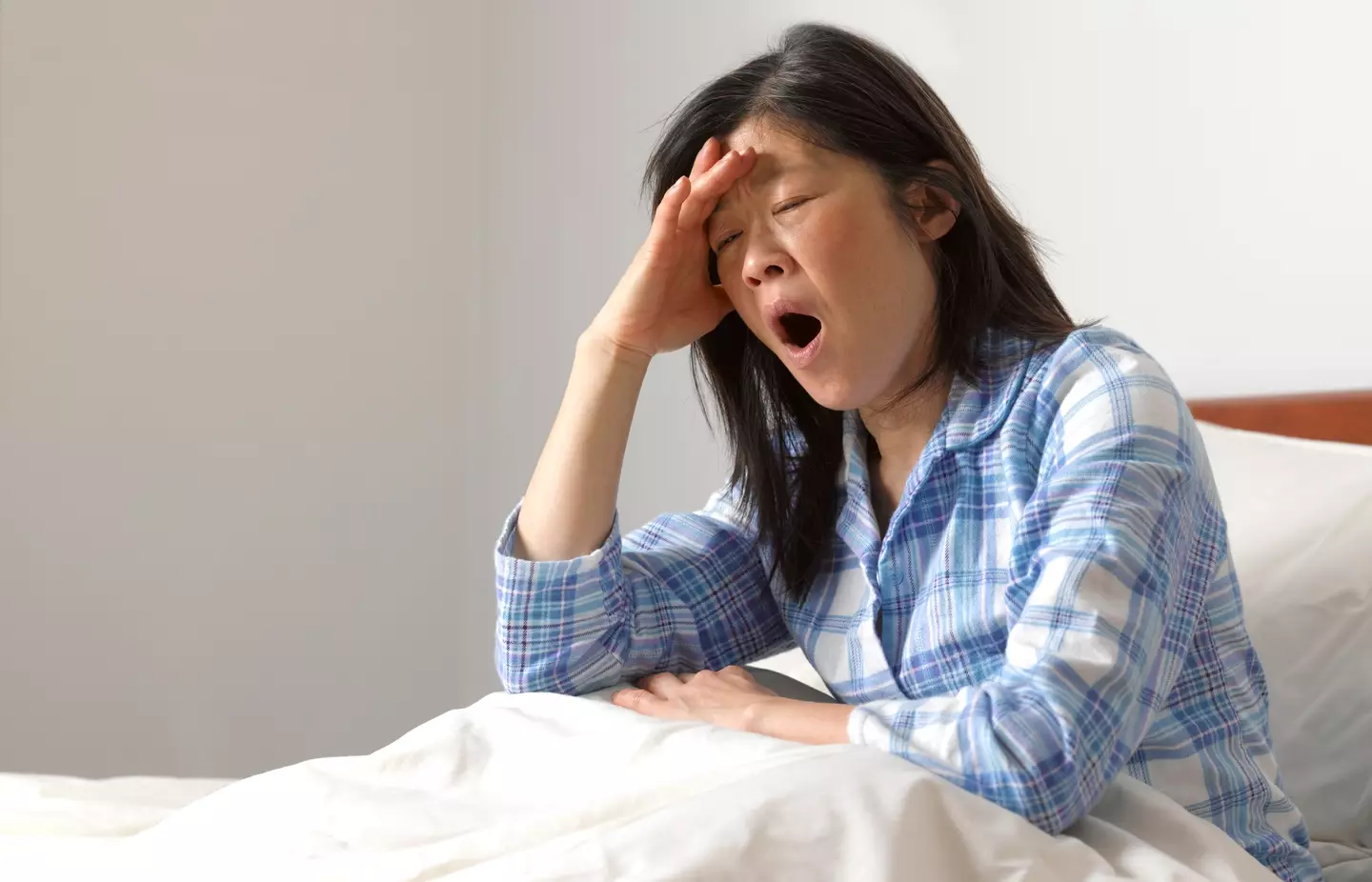
Having trouble waking up is a possible symptom of ADHD (Getty Stock Photo)
As for this common symptom which people can often miss, it’s all to do with getting enough time in bed.
According to Medical News Today, around 75 percent of kids and teens with ADHD, along with 80 percent of adults, also had some kind of sleep disorder.
There is something called Delayed Sleep Phase Syndrome (DSPS) where a person puts off going to sleep for two hours or more and then have trouble waking up the next morning.
Many people are ‘night owls’ who feel more switched on late at night and will often stay up late to make the most of this, but it carries a cost the next morning when the alarm goes off.
All of this adds up to difficulties waking up the next morning as your body hasn’t had enough sleep and the internal body clock is all over the place.
The NHS says that those with the inattentive type often tend to go to bed later, while those who are more hyperactive often suffer with insomnia.
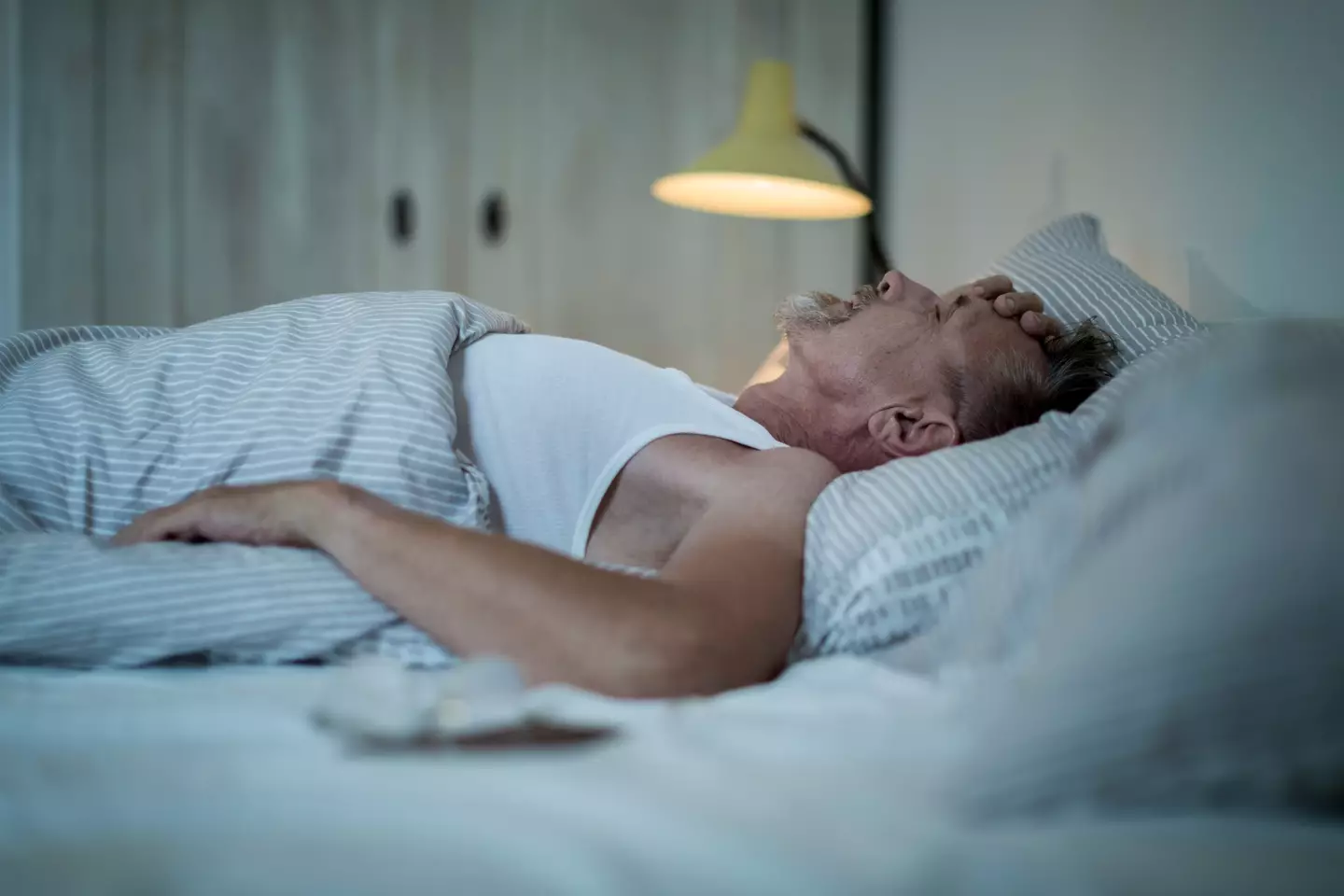
Around 80 percent of adults with ADHD also have some kind of sleep disorder (Getty Stock Photo)
For those who are struggling to wake up first thing in the morning, it could be a sign of having some kind of sleep problem – and that’s linked with ADHD.
The NHS says that sleep problems are a possible symptom for ADHD which you might want to be on the lookout for, but there are many possible signs which they list rather comprehensively.
They break them down into symptoms of inattentiveness, which means things like having a short attention span, becoming forgetful, struggling to stick to tasks and having difficulty organising what they have to do.
The other category is symptoms of hyperactivity and impulsiveness, which includes being unable to sit still, talking a lot, acting without thinking and having little sense of danger.
For kids to get diagnosed they’d need to have six or more symptoms from each category, while adults need five though theirs are harder to define.
Featured Image Credit: Getty Stock Images
Topics: Health, Mental Health, NHS, Sleep, ADHD
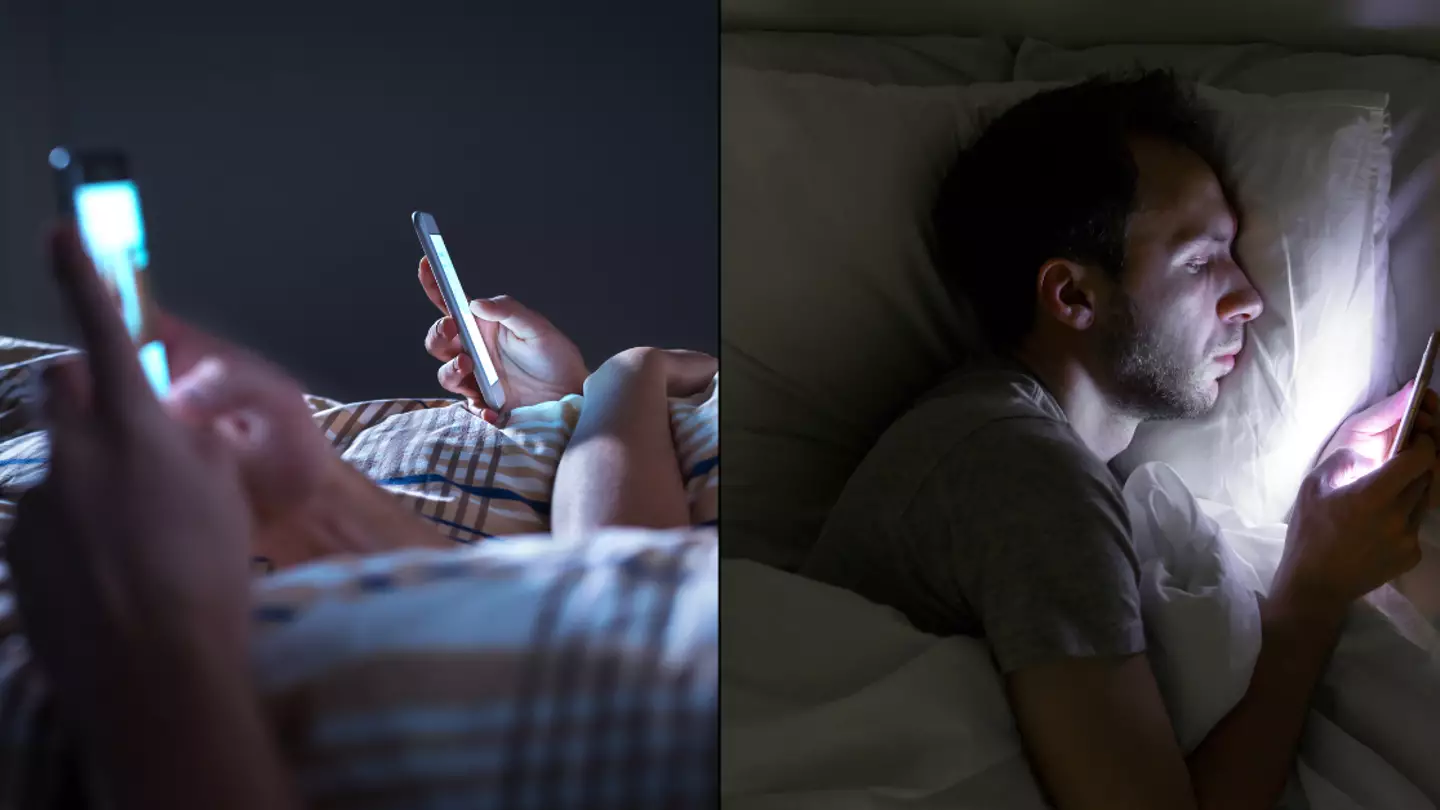
Experts have weighed in on the effect going to bed with tech can have, and it might make you feel sick.
A survey conducted with the help of MattressNextDay quizzed a number of adults when it came to bedtime habits and how they are linked with smartphones and smartwatches.
A whopping 50 million Brits admitted they sleep with their phone, as 74 percent of participants in a YouGov study admitted that they can’t leave it outside.
Due to blue light being emitted from your phone, your brain is tricked into thinking it’s time to wake, making you feel awake and more alert – but it brings bigger problems to the table, too.
Clean freaks, look away.
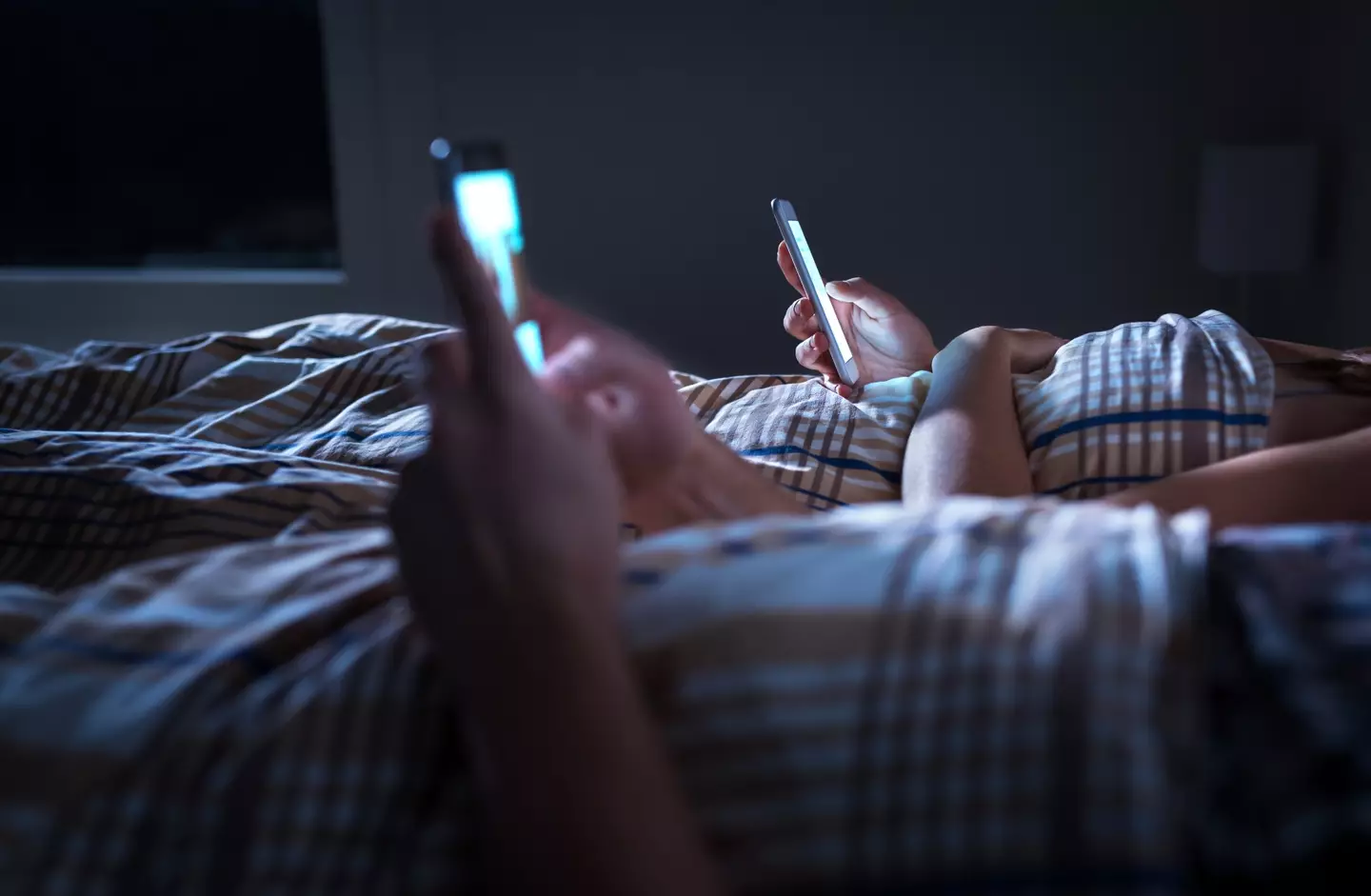
Using your phone in bed may not be the smartest idea (Getty Stock Photo)
It is said that the average person touches their phone more than 2,600 times a day, so it makes sense that our devices can become unhygienic very quickly.
Buttons on your smartphone could contain ten times more bacteria than a toilet seat, according to a University of Arizona study.
The MattressNextDay study found that 51 percent of people never clean their smartphones, which can’t help when it comes to bacteria production.
So it turns out that both smartphones and smartwatches have high levels of bacteria on them – with the former taking the cake in having the most on average.
Though it was once believed that the TV remote was the dirtiest item in the house, it looks like phones may be winning in this race.
The most common type of bacteria found on everyday tech devices is called Pseudomonas aeruginosa and though it might sound bad, it is is especially bad for those with a compromised immune system, causing skin irritation or sleep disruptions for those that choose to sleep with their phones.
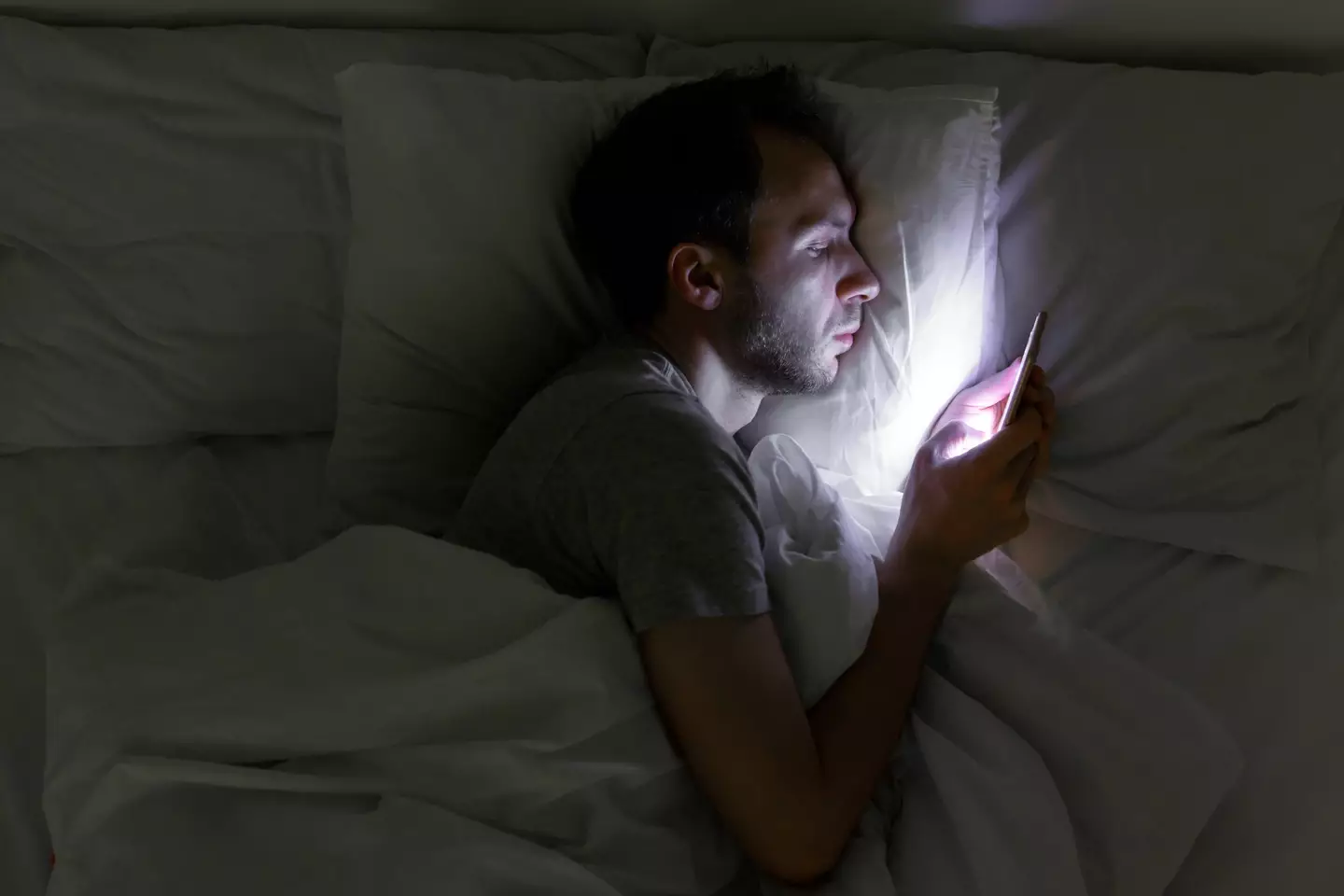
Cockroach poop bacteria could get all over your pillow if you’re not careful (Getty Stock Photo)
The disturbing finding here though is that this bacteria can also be found in cockroach droppings, meaning there is the equivalent of cockroach poop making contact with out faces when we answer a call, or getting over our hands when we check our messages.
So how do we stop this from happening?
Well you could sleep in a different room to your phone but, if like many of us, this isn’t an option, then all you need to do is stay on top of keeping it clean.
It’s important to use UV sanitiser or alcohol wipes to clean your phone to keep the bacteria away.
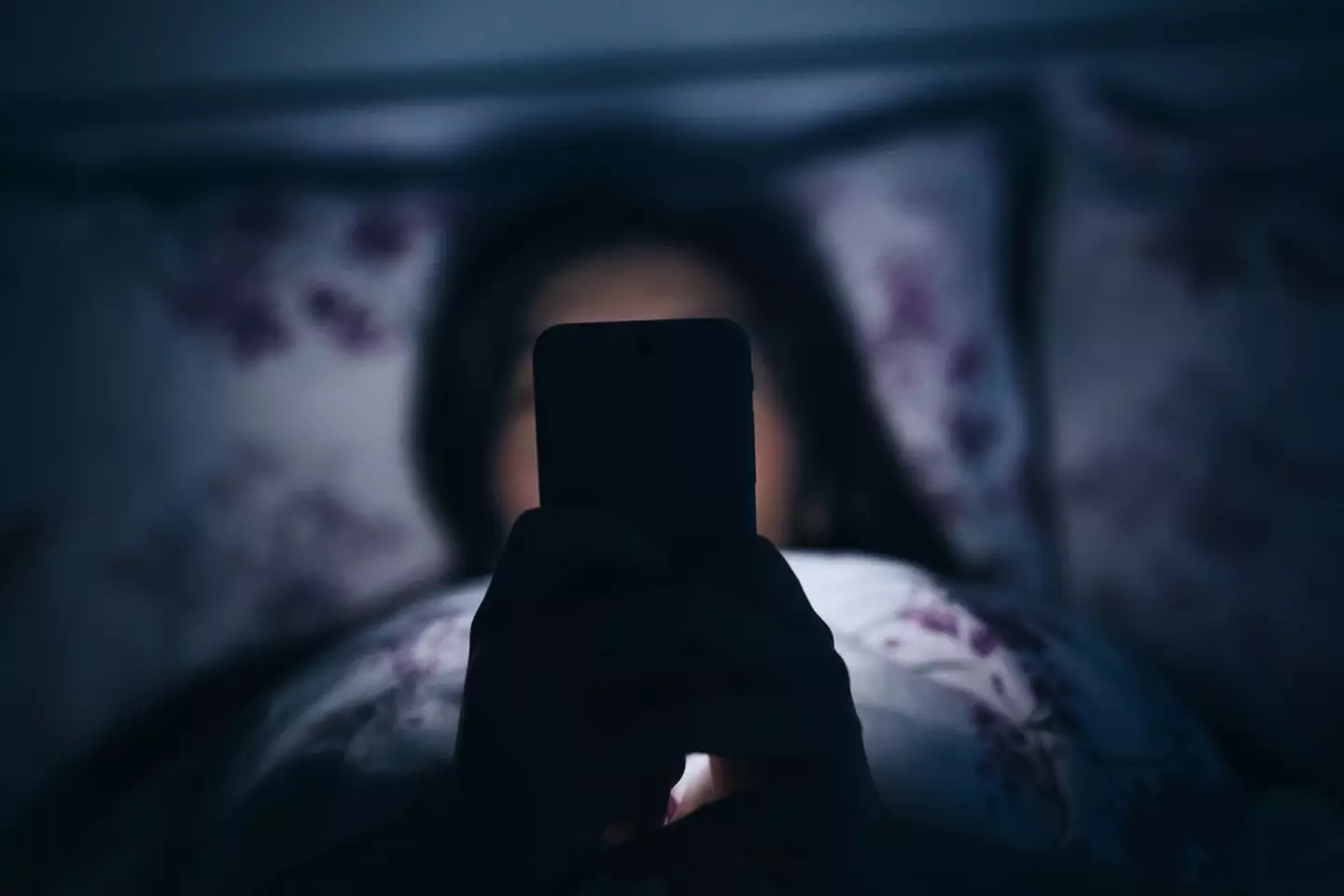
Putting it away before bed could save you from a number of problems (Getty Stock Photo)
If you sleep with your phone under your pillow, wash your pillowcase twice a week.
You can also limit the amount of times your phone touches your face and use your phone less before bedtime, but the easy fix is to keep it away from the warm environment of your bed, as it has favourable conditions to be a breeding ground for bacteria.
Sleep expert and CEO of MattressNextDay, Martin Sealey, stated: “Remember, your bed should be a sanctuary for rest, not a petri dish for potentially harmful bacteria.”
Featured Image Credit: Getty Stock Photos
Topics: Health, Lifestyle, Science, Technology, Sleep
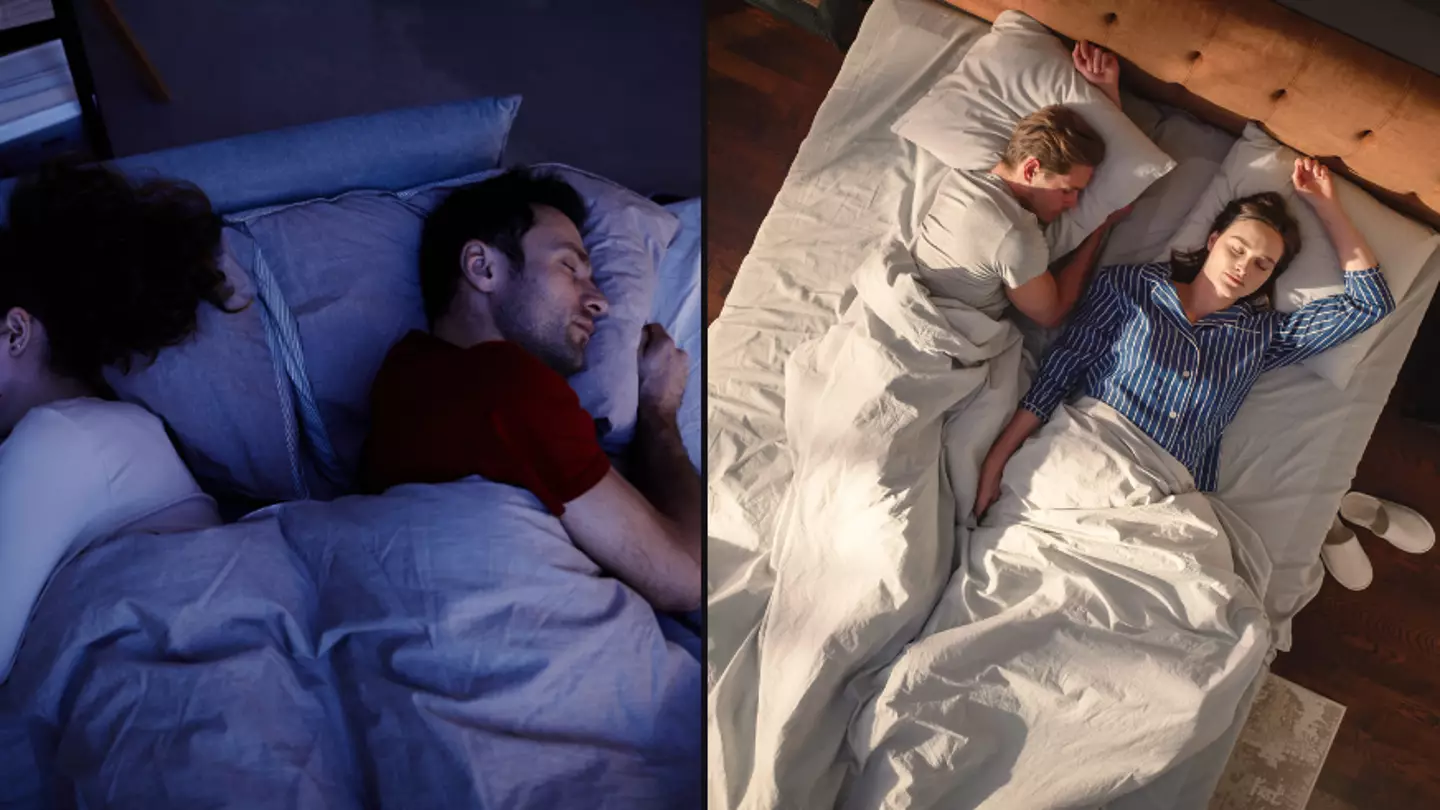
Most of us have our own designated ‘side’ of the bed, which we tend to stick to whether we’re sleeping alone or not.
It’s probably something you’ve never really given much thought to – and it only really becomes an issue if you happen to meet a partner who has the same ‘favourite’ side as you.
In fact, mattress brand Simba, which you can assume is a pretty good authority on this sort of stuff, says which side you choose to sleep on can actually reveal a few things about you.
Yep, according to the company, the side you choose to kip on can reveal things about your personality, including your general mood and attitude to work.
If you sleep on the left
According to Simba, those who opt to sleep on the left side are often more cheerful than their right-side dwelling counterparts.
Not only that, but those who sleep on the left think they are calmer than those who go for the right, and that they’re better in a crisis and more confident in general. Good for them.
They also have a higher level of job satisfaction and are better able to cope with a stressful day at work.
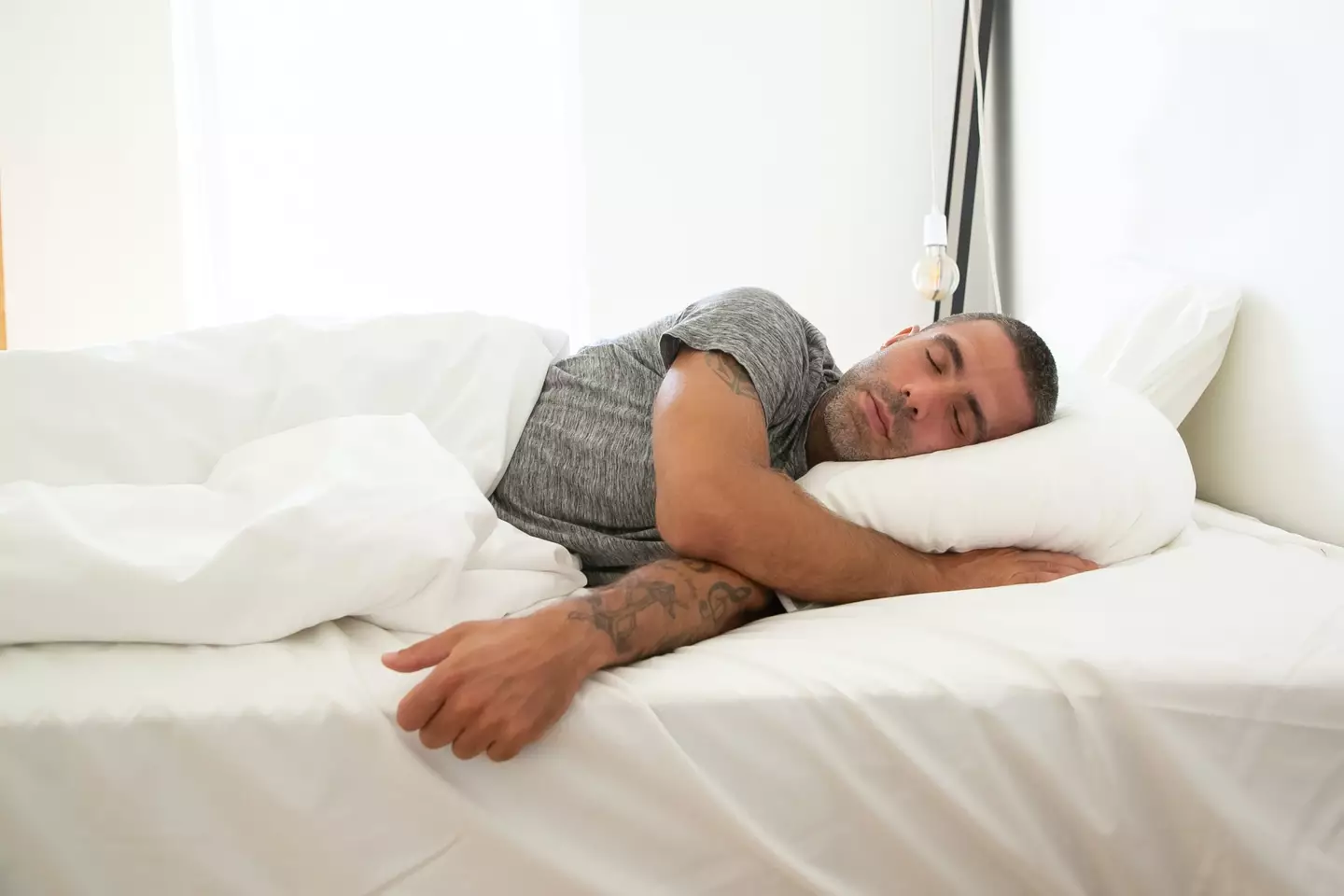
Pexels/Kampus Production
If you sleep on the right
So, it seems all pretty positive for those who prefer the left-hand side of the bed, but what about right? Well, right-side sleepers tend to earn more money, so there’s that.
Their slightly less cheerful outlook on life also means that they’re pretty grounded and are usually prepared for any worst case scenarios.
If you like to sleep next to the wall
As Simba points out, occasionally which side you sleep may be dictated by how your bedroom is arranged – but it’s unlikely that anyone who suffers from a touch of claustrophobia would choose to sleep next to a wall, equally those who feel quite safe and secure in a small space will probably choose to sleep away from the door.
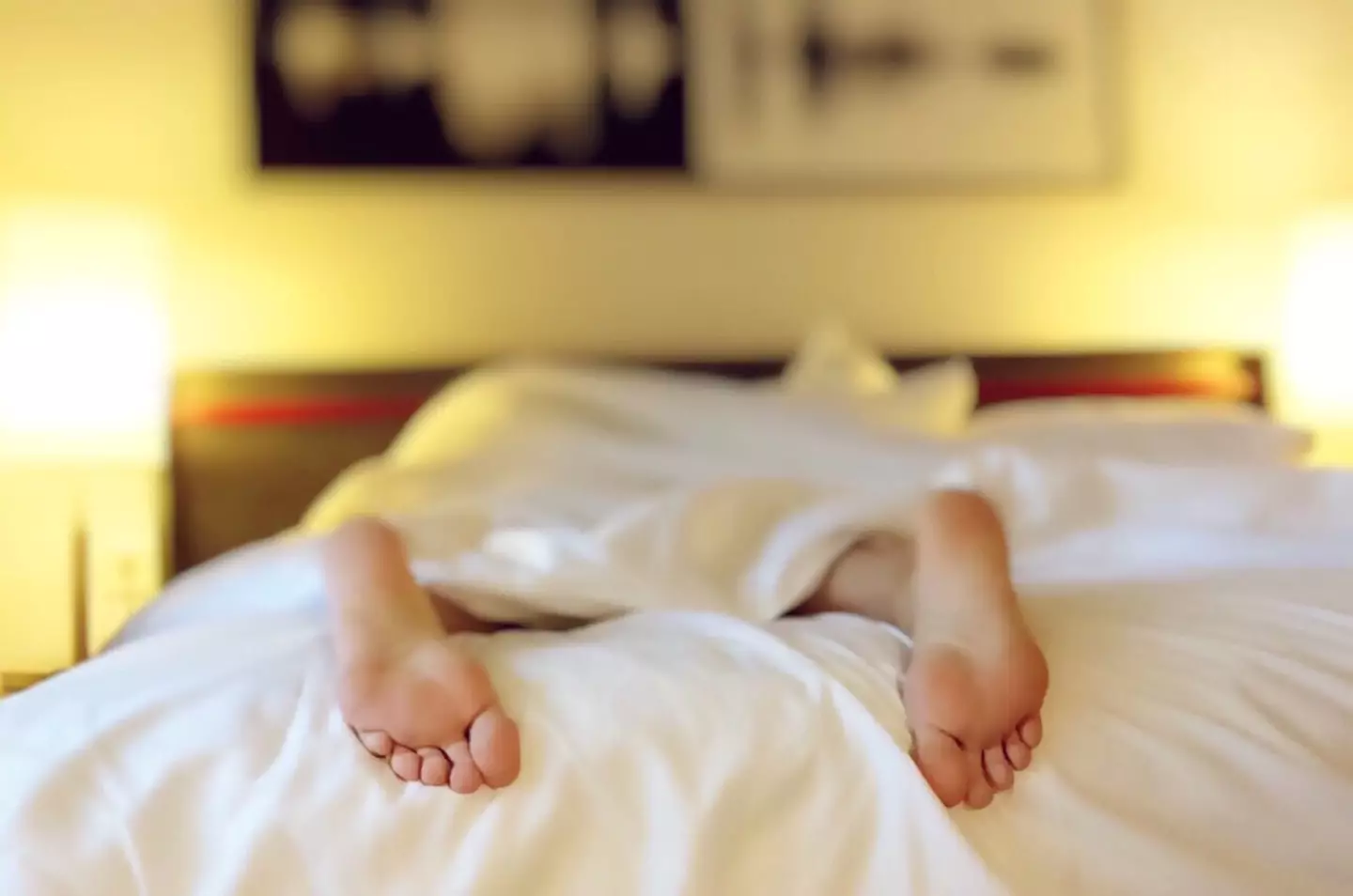
Pixabay/Pexels
Simba says that up to 10 percent of couples argue about their side of the bed, which can inevitably lead to one of them being left with the side they don’t really want. If this sounds like you, then there’s some good news as habit and routine are more important than the ‘correct’ side of the bed.
Apparently, once we have a side – even if it’s not the one we initially wanted – we tend to stick to it as we get used to it pretty soon.
Sweet dreams!
Featured Image Credit: Getty stock image
